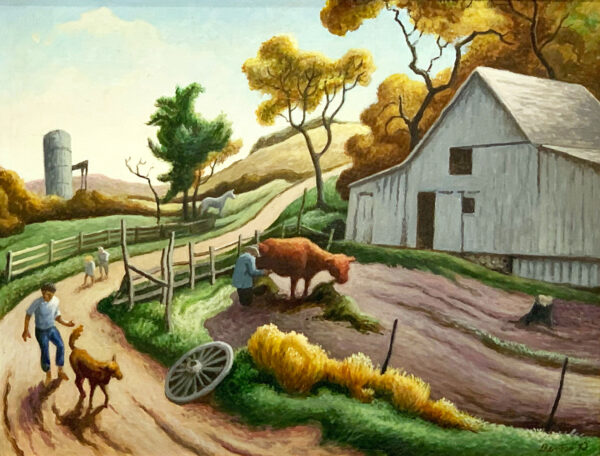Thomas Hart Benton (1889-1975) was an American painter and muralist who played a significant role in the development of the Regionalist art movement in the United States during the 1930s. He was born in Neosho, Missouri, and grew up in a family of politicians and lawyers. His father was a U.S. congressman, and his great-uncle was a senator from Missouri.
Benton studied at the Art Institute of Chicago and the Académie Julian in Paris, where he was exposed to the works of the Old Masters and the Impressionists. He also traveled extensively in Europe, Africa, and the Middle East, which had a profound influence on his artistic style and subject matter.
In the 1920s, Benton began to focus on depicting everyday life in rural America, using bold, dynamic compositions and exaggerated forms that reflected the energy and vitality of the people and landscapes he portrayed. His paintings often depicted scenes of hardworking farmers, laborers, and miners, as well as images of trains, steamboats, and other symbols of industrial progress.
During the Great Depression, Benton became associated with the Regionalist movement, which emphasized the importance of local cultures and traditions in American art. His most famous works from this period are his large-scale murals, which he painted for public buildings across the country. These murals often depicted historical events or scenes of everyday life, and they were celebrated for their vivid colors, dramatic compositions, and celebration of American history and culture.
Benton continued to paint and teach throughout the 1940s and 1950s, and he remained an important figure in the American art world until his death in 1975. Today, he is widely regarded as one of the most important American artists of the 20th century, and his work continues to inspire and influence artists and art lovers around the world.

